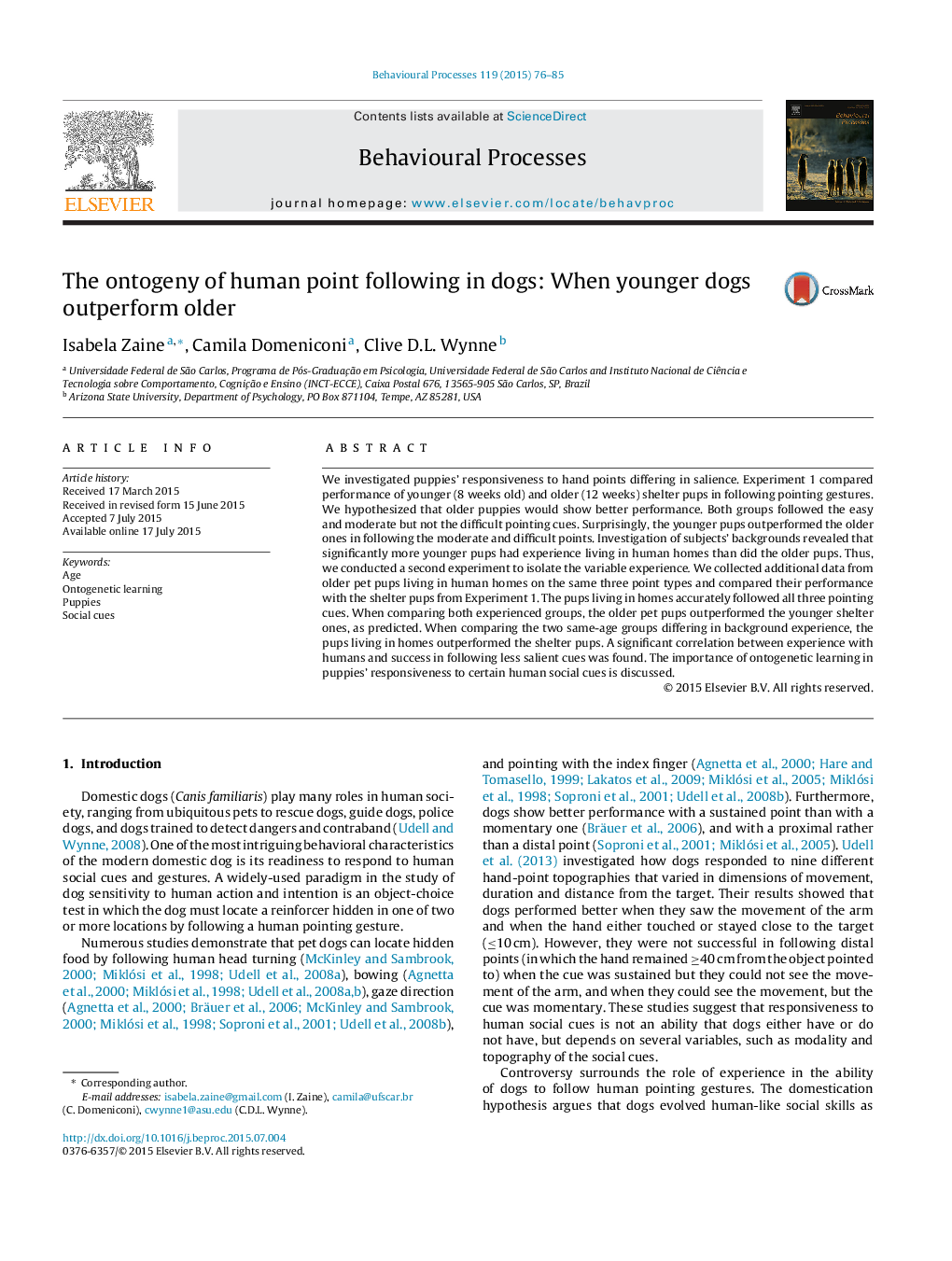| Article ID | Journal | Published Year | Pages | File Type |
|---|---|---|---|---|
| 2426521 | Behavioural Processes | 2015 | 10 Pages |
Abstract
We investigated puppies' responsiveness to hand points differing in salience. Experiment 1 compared performance of younger (8 weeks old) and older (12 weeks) shelter pups in following pointing gestures. We hypothesized that older puppies would show better performance. Both groups followed the easy and moderate but not the difficult pointing cues. Surprisingly, the younger pups outperformed the older ones in following the moderate and difficult points. Investigation of subjects' backgrounds revealed that significantly more younger pups had experience living in human homes than did the older pups. Thus, we conducted a second experiment to isolate the variable experience. We collected additional data from older pet pups living in human homes on the same three point types and compared their performance with the shelter pups from Experiment 1. The pups living in homes accurately followed all three pointing cues. When comparing both experienced groups, the older pet pups outperformed the younger shelter ones, as predicted. When comparing the two same-age groups differing in background experience, the pups living in homes outperformed the shelter pups. A significant correlation between experience with humans and success in following less salient cues was found. The importance of ontogenetic learning in puppies' responsiveness to certain human social cues is discussed.
Keywords
Related Topics
Life Sciences
Agricultural and Biological Sciences
Animal Science and Zoology
Authors
Isabela Zaine, Camila Domeniconi, Clive D.L. Wynne,
